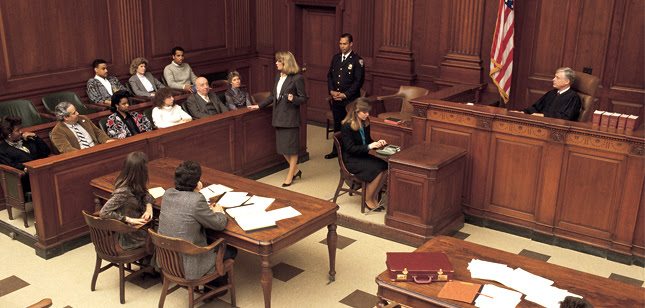Finkelstein v Lynda, 2018 NY Slip Op 08116, Decided on November 28, 2018, Appellate Division, Second Department:
"The plaintiff and Benny Cohen entered into a contract dated January 30, 2012, and a "contract modification" dated May 1, 2012 (hereinafter together the contract), to purchase real property from the defendant Steuben Street Corp. (hereinafter the seller). The seller's attorney sent a letter dated December 31, 2013, to the plaintiff's attorney setting a closing date of February 1, 2014, and stating that time was "of the essence." Although the plaintiff and the seller agreed to adjourn the closing date twice, the closing did not occur. The plaintiff subsequently commenced this action, inter alia, for specific performance of the contract.
"The elements of a cause of action for specific performance of a contract [for the sale of real property] are that the plaintiff substantially performed its contractual obligations and was [ready,] willing and able to perform its remaining obligations, that defendant was able to convey the property, and that there was no adequate remedy at law" (EMF Gen. Contr. Corp. v Bisbee, 6 AD3d 45, 51; see Victory M, LLC v Frederic, 148 AD3d 1086; Spira v Acceus, 114 AD3d 663; Huang v Shih, 73 AD3d 981; Backer v Bouza Falco Co., 28 AD3d 503; Cheemanlall v Toolsee, 17 AD3d 392, 393).
In moving for summary judgment on a complaint seeking specific performance of a contract, a purchaser must submit evidence demonstrating financial ability to purchase the property in order to demonstrate that it was ready, willing, and able to purchase the property (see Grunbaum [*2]v Nicole Brittany, Ltd., 153 AD3d 1384; Kaygreen Realty Co., LLC v IG Second Generation Partners, L.P., 78 AD3d 1010, 1015).
Here, the plaintiff did not establish his prima facie entitlement to judgment as a matter of law on his cause of action for specific performance. Contrary to the defendants' contention, the contract did not contain a provision obligating the plaintiff to secure a "conventional" mortgage loan. Nevertheless, the plaintiff did not show by competent evidence that he had obtained a mortgage loan or otherwise had the means to purchase the premises as of the closing date (see Grunbaum v Nicole Brittany, Ltd., 153 AD3d 1384; New York Tile Wholesale Corp. v Thomas Fatato Realty Corp., 115 AD3d 829; Benhamo v Marinelli, 82 AD3d 922, 923; Kaygreen Realty Co., LLC v IG Second Generation Partners, L.P., 78 AD3d at 1015; Fridman v Kucher, 34 AD3d 726, 727-728). Further, any evidence of a breach or repudiation of the contract by the seller would not obviate the plaintiff's obligation to establish that he was ready, willing, and able to close as of the closing date (see Dixon v Malouf, 70 AD3d 763, 763-764; Zeitoune v Cohen, 66 AD3d 889, 891; see also Pesa v Yoma Dev. Group, Inc., 18 NY3d 527, 531).
The defendants did not demonstrate their prima facie entitlement to judgment as a matter of law dismissing the cause of action for specific performance, as they did not eliminate all issues of fact as to the plaintiff's readiness and ability to perform the contract (see Chester Green Estates, LLC v Arlington Chester, LLC, 161 AD3d 1036; 1107 Putnam LLC v Beulah Church of God in Christ Jesus of the Apostolic Faith, Inc., 152 AD3d 474, 475; Jericho Group Ltd. v Pioneer Mgt. & Realty, LLC, 48 AD3d 368).
The record also shows the existence of triable issues of fact as to whether the plaintiff and/or the seller defaulted, which precludes the grant of summary judgment to either the plaintiff or the defendants as to the cause of action for the return of the down payment (see 533 Park Ave. Realty, LLC v Park Ave. Bldg. & Roofing Supplies, LLC, 156 AD3d 744, 746-747; Pizzurro v Guarino, 147 AD3d 879; Reid v I Grant Inc., 94 AD3d 500, 501).
The plaintiff did not establish his prima facie entitlement to judgment as a matter of law dismissing the counterclaims. Specifically, the plaintiff failed to establish, prima facie, that he did not breach the contract in the manner alleged by the defendants (see Weatherguard Contrs. Corp. v Bernard, 155 AD3d 921, 922; Derago v Ko, 153 AD3d 663, 665).
The plaintiff's remaining contentions are without merit.
Accordingly, we agree with the Supreme Court's determination denying the defendants' motion for summary judgment dismissing the complaint and those branches of the plaintiff's cross motion which were for summary judgment on his causes of action for specific performance of the contract and for return of the down payment, and for summary judgment dismissing the affirmative defenses and counterclaims."





















